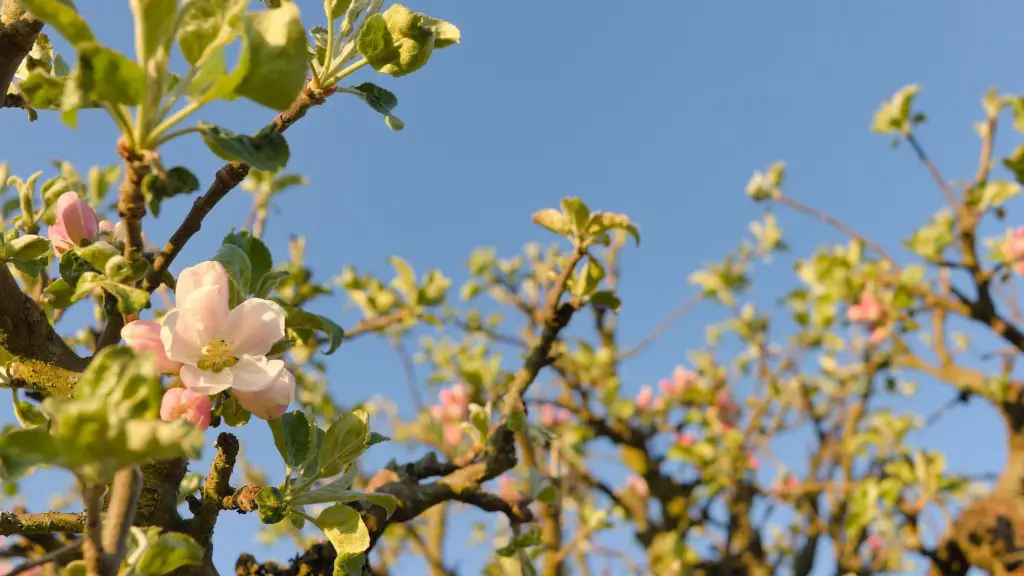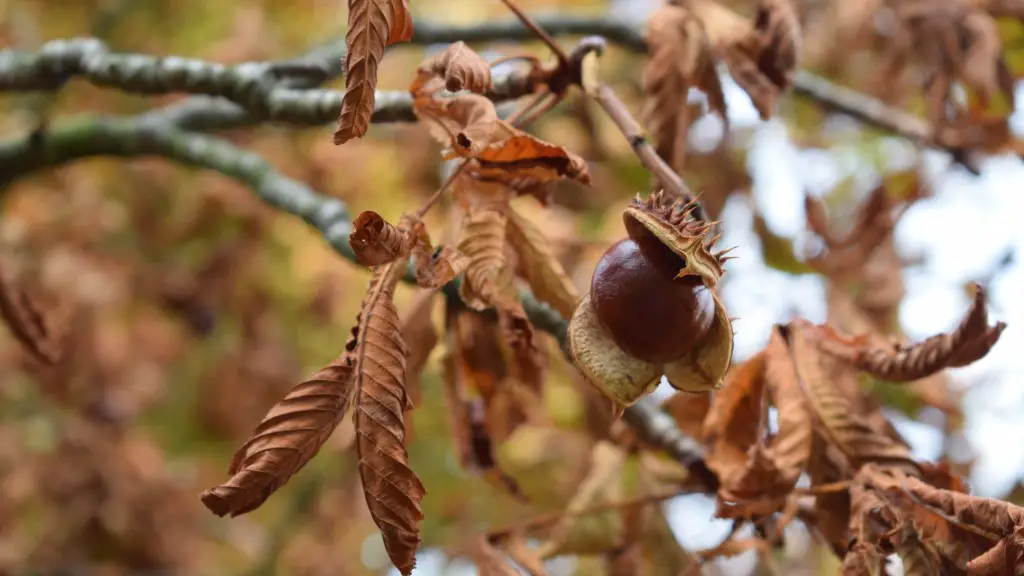Apple trees need food to grow and thrive. In order to provide them with the nutrients they need, you’ll need to understand what to feed an apple tree and when. To start, you should get familiar with the basic needs of an apple tree, as this will help you know what to feed and when.
Apple trees thrive in well-drained soils with a pH of 6.2 to 6.5. Adding organic matter to your soil can help improve soil drainage and increase the organic matter content. You can add compost, manure, grass clippings and other organic things to improve soil quality.
Apple trees also benefit from a well-balanced fertilizer containing nitrogen, phosphorus, and potassium. For best results, apply the fertilizer twice a year – in the spring, before bud break, and again in the fall, after leaves have dropped. This will ensure the apple tree has access to the nutrients it needs at different times of the year.
In addition to giving your apple tree the right fertilizer, you should also pay attention to other aspects of the tree’s care. Make sure your tree is getting adequate water during the summer months and protect it from harsh winds. Pruning your apple tree can also help keep it healthy and vigorous.
Finally, keep an eye out for signs of insect or disease damage. If you see any signs of damage, address it promptly so the apple tree can remain healthy and productive.
Nitrogen for Apple Trees
Nitrogen encourages the growth of lush foliage, which helps apple trees become more productive. Applying nitrogen fertilizer early in the spring helps apple trees produce abundant flowers and then enough foliage to cover the apples. You can apply a fertilizer with nitrogen once in the spring and once in the fall to help ensure the tree has access to the nutrients it needs at different stages of its growth.
When applying nitrogen fertilizer, you should be careful not to overdo it. Too much nitrogen can cause excessive leaf growth and reduce apple production, so stick to the recommended dosage. Also avoid applying nitrogen when the tree is starting to flower, since this can inhibit proper fruit formation.
Potassium for Apple Trees
Potassium helps the tree stay resistant to cold and drought and promotes healthy root growth. Potassium also helps the tree absorb and use other nutrients, like nitrogen, potassium and phosphorus. Applying a balanced fertilizer twice a year—spring and fall—will help provide the apple tree with the potassium and other nutrients it needs.
Adding compost to the soil around the tree can also help it get the potassium and other nutrients it needs. Compost will help to improve the soil structure and help the tree absorb and retain more nutrients from the fertilizer you apply. Be sure to keep any compost or manure away from the trunk, as this can cause the tree to become susceptible to disease.
Phosphorus for Apple Trees
Phosphorus helps apple trees grow strong and healthy and encourages root growth. The best way to apply phosphorus fertilizer is during the early spring, which will help the apple tree’s roots get the phosphorus they need and help the tree get off to a strong start.
If you have soil tests done regularly, you may be able to determine if your soil is deficient in phosphorus. If the levels of phosphorus are low, applying phosphorus fertilizer during the early spring can help ensure the apple tree gets the phosphorus it needs to produce abundant and healthy fruit.
Calcium for Apple Trees
Calcium helps to promote healthy fruit formation and helps the tree use other nutrients better. Adding a supplement of calcium to the soil can help apple trees become more productive and can help prevent blossom-end rot. When using calcium supplements, be sure to follow the package instructions and to not overuse the product.
Another way to ensure your apple tree is getting enough calcium is to leave the fallen leaves and fruit near the tree. This will help to provide the tree with organic matter as well as calcium, and helps to keep the soil healthy and productive.
Organic Matter for Apple Trees
Organic matter helps to improve soil structure and encourages healthy root and plant growth. Adding organic matter to the soil helps to improve soil drainage and increase the organic matter content. Compost, manure, grass clippings and other organic matter can help improve soil quality and provide your apple tree with the nutrients it needs to remain healthy and productive.
Adding mulch to the area around the tree can also help to keep the soil moist and protect the tree’s roots. Just be sure to keep the mulch away from the trunk, as this can cause the tree to become prone to disease.
Pruning Apple Trees
Another important aspect of apple tree care is proper pruning. Pruning helps to improve air circulation and light penetration around the tree, keeping it healthy and productive. Pruning also helps create strong, well-structured apple trees, reducing the risk of pests and diseases.
When pruning, be sure to remove any dead or damaged branches, as this can help improve the tree’s health and productivity. Also remove any water sprouts or suckers that may be growing from the base of the tree. Finally, if the tree has not been pruned for a few years, consider doing a hard pruning to help encourage new and productive growth.
Gentle Growing Conditions for Apple Trees
Finally, gentle growing conditions are essential for a healthy and productive apple tree. Make sure the tree is getting adequate water during the summer months, and protect it from harsh winds. Wind damage can cause the tree to become weaker and less productive.
Also consider the soil type when selecting a spot for your apple tree. Sandy soils can be dry and may need frequent watering, while heavier soils can be too wet and may not provide good drainage. If possible, incorporate some organic material in your soil before planting your apple tree, as this can help improve the soil structure and provide the tree with the nutrients it needs to thrive.


